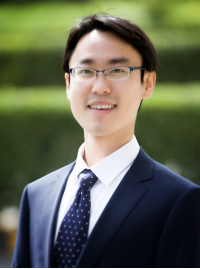Speaker:Assistant Professor Wang Zinan(Ma Yinchu School of Economic, Tianjin University)
Host:Assistant Professor Yang Cheng(Li Anmin Institute of Economics, Liaoning University)
Guest introduction:Assistant Professor He Zhenyu(Li Anmin Institute of Economics, Liaoning University)
Time: May 10th, 2024 (Friday) 10:00-11:30 (Beijing time)
Location: Conference Room, 1st Floor, Wuzhou Park, Chongshan Campus, Liaoning University
Online Venue: Tencent Meeting:547-232-215
Language: Chinese/English
Abstract:This paper studies the distributional outcomes of protectionism. First, we investigate the short-run distributional effects on workers with different skill levels by estimating structural vector autoregressions (VARs) using high-frequency measures of temporary trade barriers for the United States. We then estimate a panel VAR for a sample of thirty-six countries using the applied tariff rates. Across our empirical exercises, we find robust evidence that protectionism reduces the skill premium but increases the employment ratio between high-skilled and low-skilled workers. To rationalize these findings, we build a two-country dynamic general equilibrium model featuring asymmetric search-and-matching (SAM) frictions, capital-skill complementarity (CSC) in production and producer dynamics, which successfully replicates the VAR evidence. Our counterfactual analysis highlights the interaction between asymmetric SAM and CSC in qualitatively shaping the distributional patterns of protectionism, while producer dynamics magnify these effects quantitatively.
Introduction to the speaker:

Wang Zinan is an assistant professor at the Ma Yinchu School of Economics at Tianjin University. He has a PhD in economics from the University of Washington and a bachelor's and master's degree in science from Peking University. The main research areas are Macroeconomics, International Economics and Labor Economics. His article was published in Open Economics Review.
